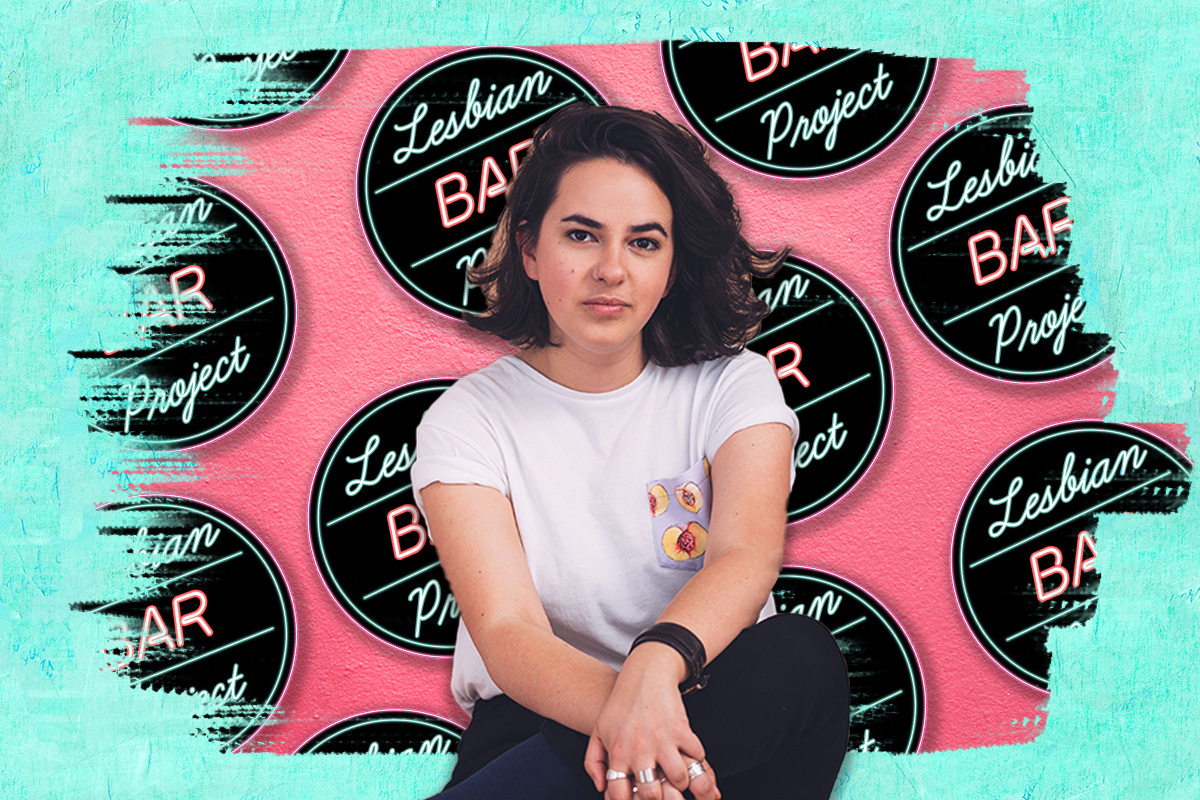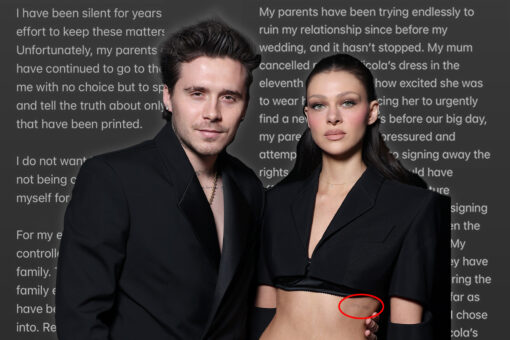For a relatively young filmmaker, Erica Rose has already accomplished quite a bit. “Ponyboi,” a film she produced, was screened at the famed Tribeca Film Festival in 2019. Her short narrative film “Girl Talk,” a masterful exploration of lesbian relationships, has over 30 million views and was an official selection at numerous film festivals, including internationally. And her writing has been selected to participate in screenwriting labs like the Outfest Screenwriting Lab and the Middlebury Script Lab.
But it would be an understatement to say that Rose’s pandemic project was, and continues to be, her most ambitious yet. The goal? Save lesbian bars in the United States.
If you didn’t know lesbian bars were in trouble, prepare for some pretty bleak numbers: 30 years ago, there were approximately 200 lesbian bars in this country — all spaces where specifically lesbian-identifying people could commune together. Now there could be as few as 21.
Worse, when the COVID-19 pandemic hit the U.S., the extinction of lesbian bars seemed a forgone conclusion. Around the same time, this issue came to the attention of Rose and collaborator Elina Street. “Our industry as filmmakers, as many industries were, completely shut down. We had nothing but time to reflect on the importance of our gathering spaces,” Rose told Alma. “We were like, we have to do something about this. We have the time, we have the resources, let’s make something. So we teamed up with a couple other producers and we birthed The Lesbian Bar Project.”
The Lesbian Bar Project, which started out as a branded PSA with Jägermeister’s #savethenight initiative and executive produced by “unifying, queer voice” Lea DeLaria, has since grown into a longer-term effort to document, map and support the estimated 21 lesbian bars remaining in the United States. For support, the project raised over $267,000 for the bars over the last year and a half. As for the documentation, in June of 2021, Rose and Street released a 20-minute documentary, once again executive produced by DeLaria.
“Our goal was to really humanize the staggering statistic,” Rose explained. “We wanted to tell the stories behind the bars and who makes up the bars. So our film was through the lens of the bar owners, community activists, patrons and archivists. We filmed in New York, D.C. and Mobile, Alabama.”
Excitingly, Rose and Street are now in the process of developing a Lesbian Bar Project docuseries, focusing on the history and current situation of lesbian bars.
I caught up with Erica over Zoom about The Lesbian Bar Project, what it means to be a queer, Jewish filmmaker and her first lesbian bar experience.
This conversation has been condensed and lightly edited for clarity.
First off, could you tell me about your Jewish upbringing and your Jewish identity?
Let’s see… my Jewish upbringing… I was definitely raised very Reform. I mean, everyone in my family is Jewish, like 100% on both sides. I think my sister did one of the genetic tests and we’re like 99% Ashkenazi Jew. So that’s very much my identity.
I had a bat mitzvah, and I would say that I’m definitely very proud to be Jewish. I went to Hebrew school. My kind of relationship with Judaism is far more centered on the community and the cultural aspects of being Jewish. Like, my sense of humor and my artistic tastes are definitely influenced by my Jewish upbringing — my self-deprecation, my anxiety. But I am not a religious person.
I will say what’s interesting, though, is that I spent a lot of years, especially in my early 20s, as I was coming out, really congregated to a really outspoken LGBTQ identity. I was like, that’s my community. And then it wasn’t until the recent spike in antisemitic violence that I really started to understand just how important it is to claim my Jewish identity. So I’m currently bridging those two together.
And it’s been interesting with The Lesbian Bar Project, and partnering with a couple of Jewish organizations, that I’ve been able to instill what I learned as a kid [at Hebrew school], in terms of community, discussion, coming together and bringing that into my advocacy as a queer person as well.
That’s awesome. Did you ever feel like you had to reconcile your Jewish and queer identities? Because I grew up Reform also, and I didn’t really come out until college. Fortunately, I never felt pressure on the Jewish side about being queer, but I know that’s not the case for everyone.
I don’t know. I don’t think so, because we weren’t part of a synagogue and we weren’t part of a more institutional kind of practice of Judaism. And my parents and my family, we identify as atheists. We’re like, so Reform. It sounds like you and I had a similar upbringing.
I never felt the pressure from my family after I came out. I never felt the pressure from my Jewish mother to marry a Jew — a nice Jewish guy. I’m happy that my girlfriend’s Jewish. But I never sought out a Jewish partner. I’ve dated many different types of people, and it just so happens that my girlfriend is Jewish. But it wasn’t important to me.
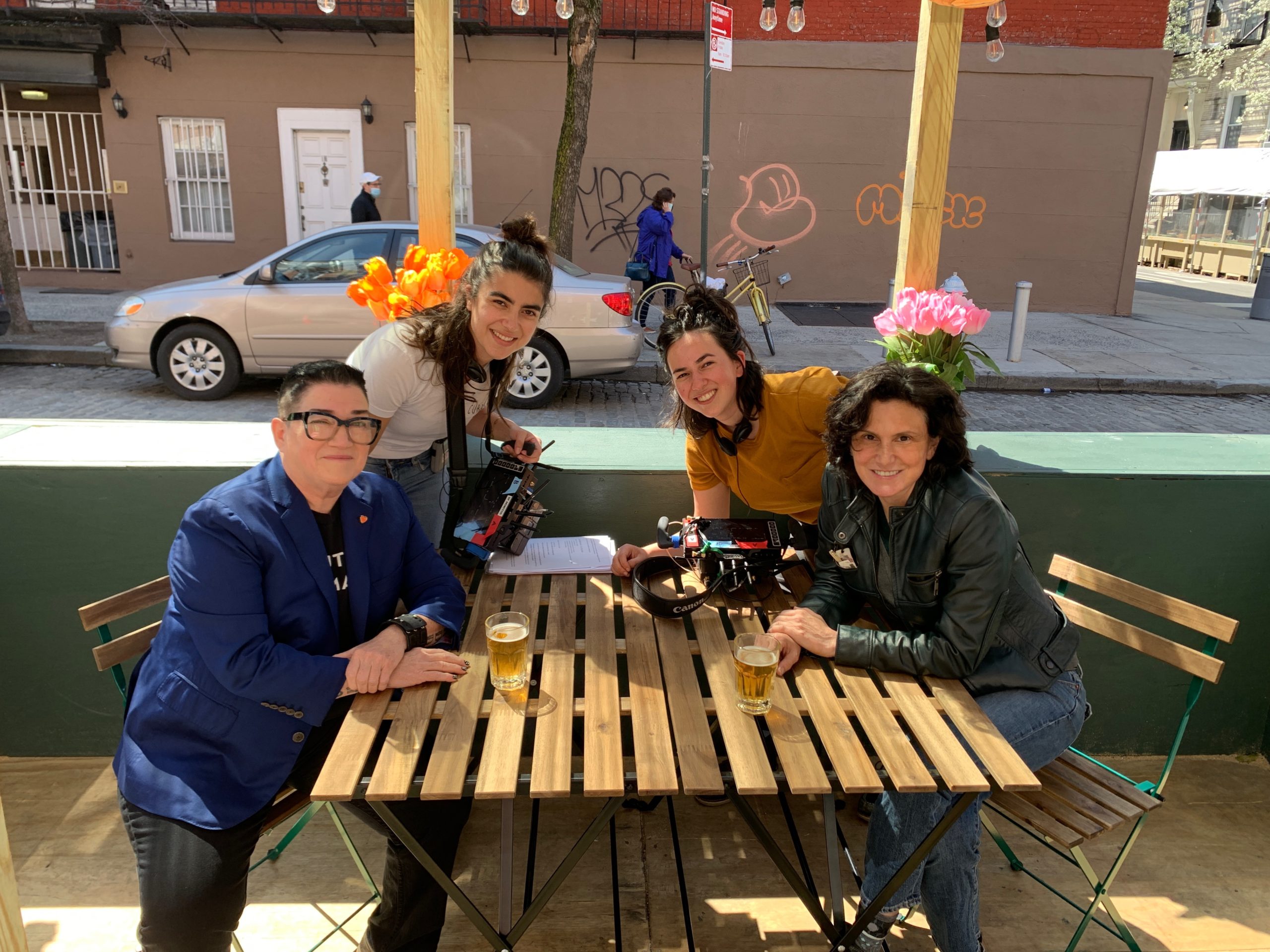
To kind of switch directions a bit: What inspired you to become a filmmaker?
Hm, I don’t know what exactly inspired me. I remember always wanting to do it. Basically, I was raised outside of Boston and my parents are therapists.
Very Jewish.
Yeah, I know, right? It explains a lot.
But they exposed me to art at a very young age. My dad is somewhat of a cinephile. He was like, I need you to be literate in Scorsese films. By the time I was like 9 or 10, I was watching “Raging Bull” and “Taxi Driver,” like, way too young. And so I immediately fell in love with the medium. But I never really saw women behind the camera. Of course there were women making films back then, but they just didn’t have the same sort of exposure that male directors did.
So I was making stuff on my own for a long time, just for fun. And then I was like, I’ll just become a film journalist or critic. I spent years resigning myself to that. And then I started to educate myself so much. I had — I still have — all these books like “1001 Movies You Must See Before You Die.” I read it multiple times, and memorized it, educated myself on everything, and then started to discover that there’s filmmakers like Jane Campion and Mira Nair and Sally Potter and Penny Marshall and Claire Denis; people who were just making it happen against all odds. I was like, I want to be like that. Why am I going to spend my life criticizing other people’s work when I don’t give myself the opportunity to make my own?
So I pivoted and started really taking it seriously, all self-taught. And then I got into NYU Film School and went there. I graduated in 2013, and spent a lot of my 20s working on — I did a lot of stuff. I was a producer’s assistant on major television shows, and then I produced a documentary series for streamers. And then when the pandemic hit I decided to fully give up producing for other people, and focused on directing my own work. So that’s been the past couple of years.
So, what would you say it means to be a queer Jewish filmmaker?
I think it’s interesting, because I think that’s like the first two identifiers that people use about me. I remember I was at a party once, and someone introduced me to their parents. They were like, this is Erica. She’s Jewish, and a lesbian, and a director. And that’s it. I was kind of stunned by that. Then, the person came back and apologized to me and was like, I shouldn’t have used those identifiers in a way that was like, you’re only defined by that.
Because I’m really proud of the fact that I’m queer. I’m Jewish. I would never shy away from that. But I think it’s not the only thing that defines me. I think it’s influential in my work. I think most of the films that I make, and will make, have queer characters. Because I know queer characters. People always say write what you know, but I don’t think that the work I make is just simply defined by being queer or by me being Jewish. I think that is part of it. I think that’s what helps make it interesting and helps make it divisive and helps it stir feelings within people. And I think that it helps make [my work] relatable to a lot of people, but it’s not the only thing that I strive for in terms of my work. People can call me whatever the fuck they want, as long as they watch my work and look at it with an open eye.
In terms of the marketability of my work, I talk about this a lot, in the industry I’m immediately identified as niche. That’s just how a majority of executives look at it. And like, OK fine, my audiences are marginalized communities. But I don’t think that necessarily makes [my work] quote-unquote niche. I think anyone can watch it and relate to it.
And that’s what happened with The Lesbian Bar Project. So many people who weren’t just queer women gravitated to this because I think people understand that when a marginalized community is suffering, that affects us all. It doesn’t just affect one community. And I think that if there’s more universality in how we distribute work, and if we don’t necessarily target only specific demographics, we’ll get out of the confines of only watching work within your identity check box. And so I know that I have my core audience, and I want to make work for my core audience. But I also think that I can transcend that and bring in everyone. But I think there’s also a fine line because I don’t want to necessarily appease heteronormative markets. I think they should fucking come to me.
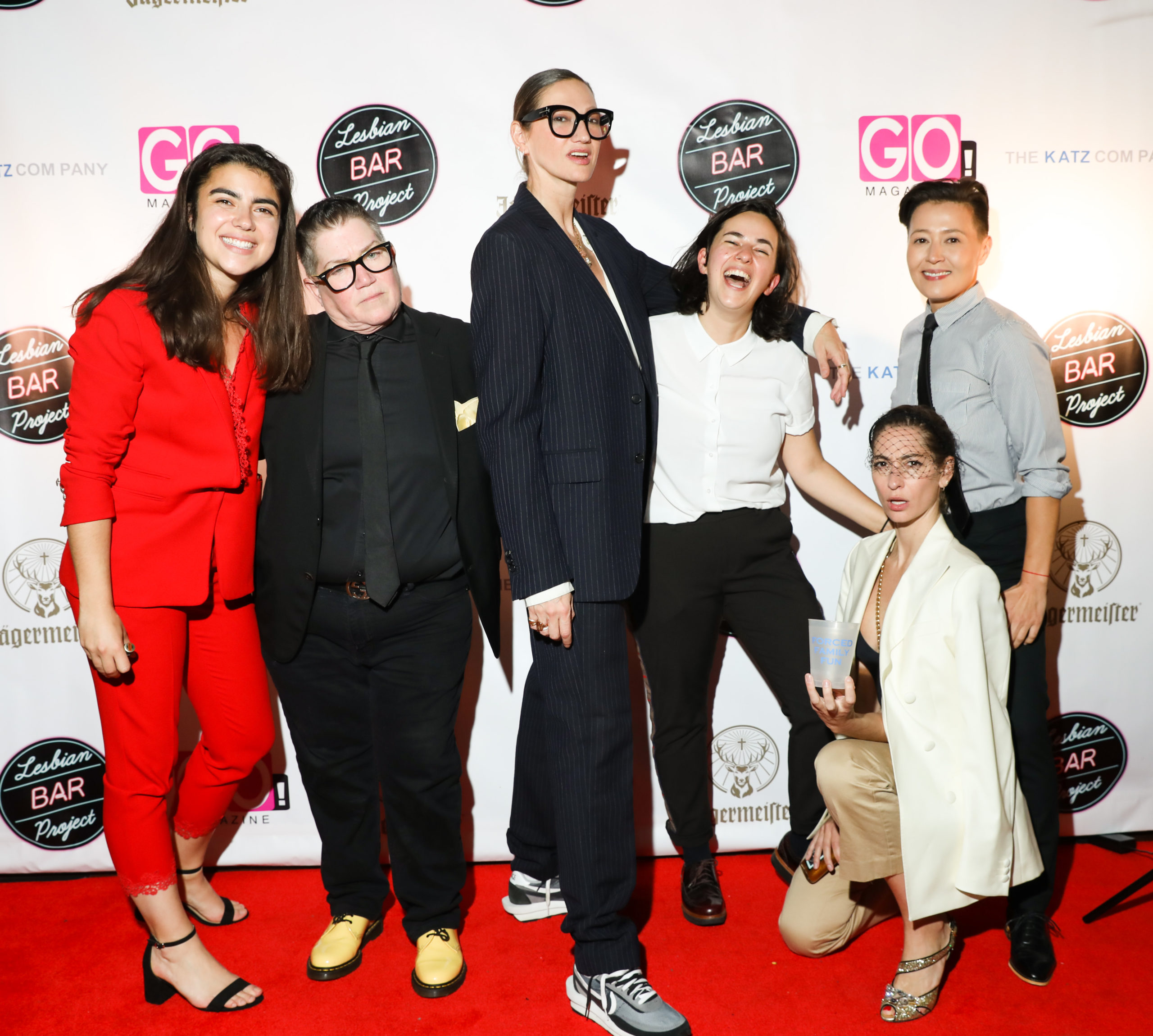
In your view, why are lesbian bars important?
[The Lesbian Bar Project] believe[s], and we’ve outlined this on our website, that lesbian bars are not just for lesbian-identified people. They’re for all marginalized genders within the LGBTQIA community, so that all queer women, regardless if they’re cis or trans, non-binary people and also trans men have a space. Lesbian bars have a divisive past — they have to reckon with the transphobic and racist policies that they maintained for a really long time, and some still do. None on our list, but I think gay bars in particular need to do better.
But regardless, lesbian bars are so important because, for me personally, they’re one of the few spaces I was able to be my authentic self. It’s not just for hooking up. Honestly, that rarely happened for me; it was really a space for queer community. It was a space for queer friendship, which I feel like gets overlooked all the time. We have very few spaces where queers can just gather and be friends with each other and meet new friends and network in a safe space. And it’s a space for intergenerational dialogue.
I think that the amount of space we have as a community reflects our social and political power. So it says something that we only have an estimated 21 spaces that are dedicated to us. That means that our country does not value queer women. One thing that we set out to do is to say, these spaces are important, not just as drinking spots, because that’s just one kind of aspect of these spaces. They are pillars of the community, and they’re pillars of a specific community based on that geographic region. That’s one thing we really set out to do it with our film.
I think what especially stood out to me about the film is what you mentioned: not shying away from discussing the racist and transphobic past and history of lesbian bars. You make sure to talk about that, which I think will help to change the culture. I really appreciated that.
Yeah, that was big. We really weren’t sure if we were going to call it The Lesbian Bar Project. We debated that for a long time. But we felt that we should be more flexible with how we define what a lesbian or who a lesbian is. When Lisa Cannistraci of Henrietta Hudson changed her logo [replacing an image of a woman with a genderless symbol], she got a lot of shit for that, which sucks. But she had the best retort to it, because people were saying, like, oh, man, it’s no longer a lesbian space. Just like transphobic and terrible stuff. And she said, really beautifully, you thought 10-20 years ago you were in a lesbian, women only space. But you were wrong. There were men there. There were non-binary people there. They were trans women there, there were bisexual and pansexual people. There were so many different identifiers and community members there, and we just didn’t have the language for it yet. Or it wasn’t as socially acceptable yet.
I look at that, and I’m like, trans men, non-binary people, bisexual, pansexual, whatever — those people have always been part of the lesbian community. So it would be such a shame and a disservice if we only were exclusive to cis-lesbian identified people. That isn’t what our community’s about. And I think that the gay male community has often been exclusive, sexist and misogynistic to many different types of people within the queer umbrella. Queer women should do better. Hopefully they will catch up and they need to, but I think that we can really set a precedent.
You talked a little bit about your lesbian bar experience, but what was the first lesbian bar you ever went to?
I always say this and I love saying this, that Cubbyhole [in NYC] knew I was gay before I even did. I remember going in for the first time, and I went with straight people. I mean, we were all performatively straight at that time. And we went as this kind of social experiment. I remember going into it being like, oh my God, this is so taboo. We didn’t go into it seriously, you know. I had known I was gay, or I had suspicions that I was for a long time, and hadn’t admitted it to myself yet.
When I walked into Cubbyhole, I had never seen just women around me that were out, that were queer. I feel like there was a dearth of representation even 10-11 years ago. And I didn’t have any queer women, young queer women especially, in my life who were out. In retrospect I had many queer women around me and none of us had the language yet or were comfortable coming out yet. And I felt this immediate sense, I couldn’t even put words to it, but I felt this immediate sense that when I was ready to come out, I would have a safe space to go to. And that’s really, really powerful.
When I finally came out, I really came of age in the bars. [Lesbians bars] were a space where I could be my authentic, gay, weird self, and I could feel attractive, feel accepted, feel invigorated. I didn’t have that luxury with every bar I went to. I don’t know if you have had a similar experience, but it’s like this really unique power that I got to harness where I could feel that this is a space made for me. And there are so few spaces where I really feel that way.
Now, I don’t drink at all anymore. And I was never into that kind of culture. But I still love going to the bars. My most formative memories in my 20s are at the bars, and I would really hate to lose that. That’s why we did this project. People need to know and people need to stop taking these spaces for granted. At the same time, I think people can criticize these spaces, because I think a lot of them need criticism.
I think what’s interesting is that they’re changing. It’s hard to say, because the pandemic’s not over, but I think there are certain silver linings. For example, a lot of these spaces, like Henrietta Hudson, had to completely rebuild. They made cafe spaces, so they’re open earlier. So that’s more inclusive for families, it’s more inclusive for people who work nights, it’s more inclusive for people across the socioeconomic spectrum. I think that a lot of these spaces are trying to become more so community centers and more so event spaces. And I think that’s really, really exciting, and it’s serving a purpose that [lesbian bars] did decades before in the ‘30s, ‘40s, ‘50s, ‘60s and ‘70s, really up until the ‘80s. These spaces had to exist solely as a utility and a lifeline for people. It was the only way people could meet someone somewhat safely, but they had to deal with constant police raids. And in the ‘70s, you found that there was a bit more openness, but a lot of those bars were run by the mob. So they weren’t necessarily safe.
And then really in the late ‘80s and early ‘90s, you have this kind of surge of lesbian chic fascination. It was almost like our community was under this microscope; our community was in popular culture where I think that certain celebrities appropriated our culture and sexualized it and in a way that people found appealing. So you saw for the first time that Madonna and Jenny Shimizu were making out on the cover of a magazine and that was seen as socially acceptable, but it trivialized our culture. And there was a backlash to that and there was this kind of oversaturation of these hypersexualized images of queer women. So I think that people didn’t really take it seriously, or take us seriously. I think that was really the beginning of a lot of the loss of our spaces.
In New York City you had to deal with the Giuliani administration that essentially weren’t doing police raids, but he was sending people from the mayor’s office to put predatory fines on queer spaces to essentially bankrupt them and shut them down. So you have to contend with that, you have to contend with gentrification that is sweeping across all coastal cities in the United States, and you have to contend with the fact that queer women are still discriminated against and women make less than men in general.
So yeah, sorry, this is very long-winded. I don’t even know what I was answering about, I was just kind of monologuing.
No, that’s really important information. I didn’t know about the Giuliani administration. That’s wild. But also not surprising.
Yeah. We wanted to include that [in the documentary]. But there was a lot we had to cut from the film because we just didn’t have time; because we only had 20 minutes. That’s why we want to do a docuseries because there’s so many interesting things that have to be talked about. We have a whole episode in New York, looking at the history of these spaces and how they were run and shut down. That’s our first episode of the series; it gives the context of what is happening and why our spaces are under siege.
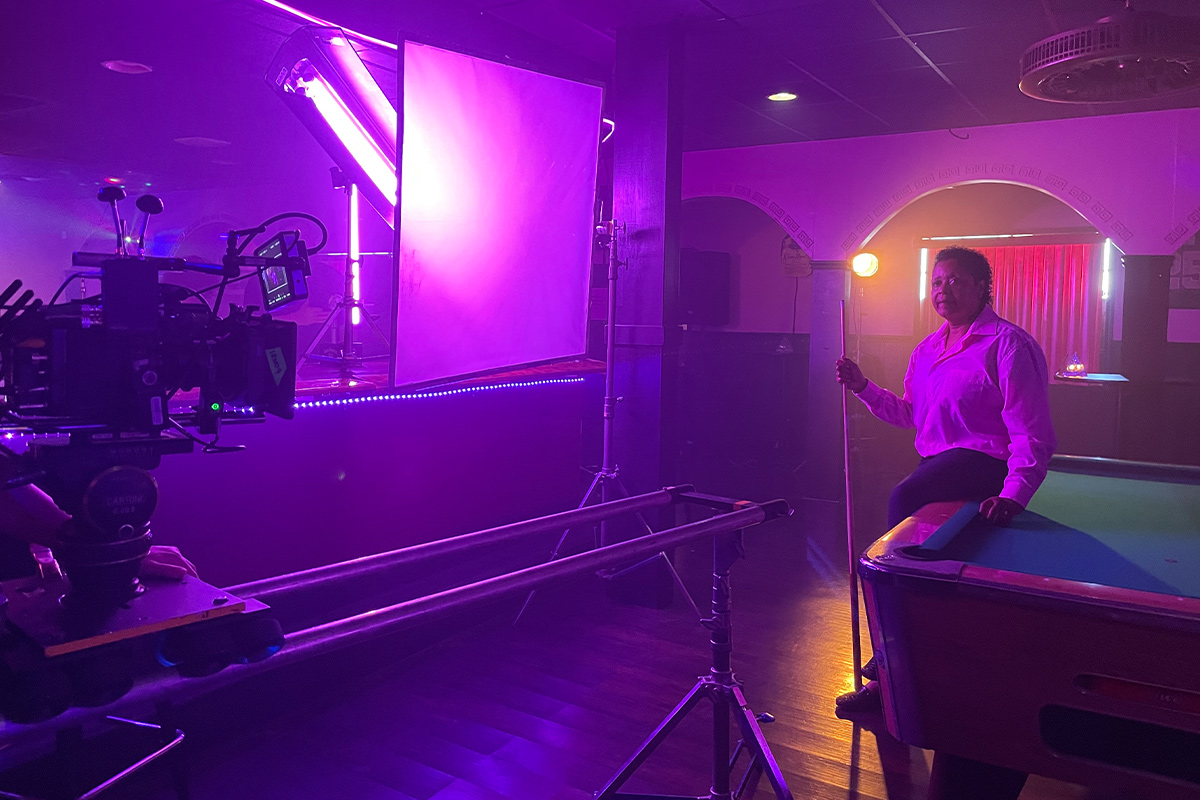
So my last question is, how do you think the Jewish community can better support the LGBTQIA plus community at large and The Lesbian Bar Project?
I think in general, religious institutions and religion need to be far more inclusive, and far more accepting. I think Judaism, especially Reform Judaism, does a pretty good job compared to other religions. But I don’t want to speak generally about that, because it’s based on everyone’s personal experience. But I think that we can start using more inclusive language. There are a lot of queer rabbis and queer Jewish teachers, and we can give them more of a platform and more of a voice.
In terms of The Lesbian Bar Project, I think that there’s a crossover in the sense that Jewish people are marginalized, persecuted people. Queer women are marginalized, persecuted people. And I think that we can support one another by advocating for our space, advocating for our rights, and supporting each other, either by patronizing spaces or supporting in other financial ways.
